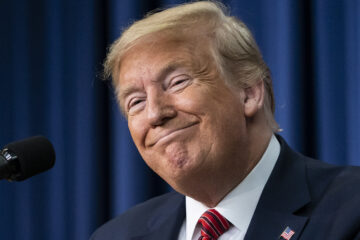Limits of the POWER VACUUM Logic in AFRICA
This article is based on “Liberal intervention’s renewed crisis: responding to Russia’s growing influence in Africa” by Katja Lindskov Jacobsen and Karen Philippa Larsen (2023).
In its 2018 National Defence Strategy, the US has underlined its goal in Africa: countering the “malign influence of non-African powers”. In this perspective, the US and other Western countries should avoid leaving a void that Russia and China would quickly fill. Likewise, in August 2022 after France left Mali, the media pointed out to the risk of seeing Russia, and more specifically the Wagner group, filling in the void left by French troops.
Western powers tend to see Russia’s involvement in Africa as constitutive of a great power rivalry in which it attempts to fill in a power vacuum.
This approach is somewhat oversimplifying the actual situation. As a matter of fact, it doesn’t reckon with 2 major points: African actors’ agency and the diversity of power vacuums.
I. African actors’ agency
African States have their word to say in deciding who is going to stay or leave their country. They also have their word to say in choosing how to solve their problems. Indeed, we are currently witnessing more and more African leaders promoting the “African solutions to African problems” approach. It is especially the case in Central and Eastern Africa in countries like Uganda, Rwanda, the DRC and Somalia.
In fact, the vacuum logic assumes that African States are too weak (or even failed) to ensure their own security. Their only solution would be to turn to a great power to do it for them.
Example: Mali
In Mali, the government led by colonel Assimi Goïta ousted France in August 2022, thus showing that African States have some level of discretion in choosing who to invite and who to chase out. The Wagner group then quickly replaced the former colonial power.
It was not France that decided unilaterally to withdraw from Mali. The Malian State, in close cooperation with Russia though, expressed its will to see French troops depart.
II. A vacuum can be of a different nature than spatial
The vacuum logic assumes that liberal and non-liberal actors cannot operate in the same space. It prevents Western countries from understanding that despite the absence of Russian agents in a country, Russia can still influence certain spheres of its society. Liberal actors should not focus on whether they are present but rather on how they are present.
Example: Central African Republic (CAR)
When Russia set foot in the CAR in 2018, there was a pragmatic coexistence between Russia and liberal actors, namely France, the MINUSCA and the EUTM. For instance, since 2013 the CAR was under an arm embargo imposed by the UN. However, the country was in need for weapons to quell rebellious movements.
Russia managed to obtain the assent of the UN to provide weapons, thus filling in a void that liberal powers didn’t fill. This indirectly helped the EUTM carried out some of its missions with central African armed forces because its mandate didn’t allow for the provision of lethal equipment.
Therefore, Russian activities complemented that of liberal actors by filling in a vacuum that was not spatial.
III. Conclusive remarks
Western powers also tend to antagonise so much Russia, especially under President Biden’s “democracy vs. autocracy” paradigm, that they are unable to question themselves and understand Russia’s attractiveness (that they deem illegitimate) in Africa. Therefore, they cannot understand why they are deselected by Mali, Burkina Faso and the Central African Republic in favour of Russia for instance.
It is essential that liberal powers don’t see Africa solely as a proxy landscape for their power rivalry with Russia. They ought to bear in mind that developing cooperation with African States is necessary to address the multiple crisis and conflicts that wreak havoc all over the continent and that can directly affect them, especially in Europe.
To do so, liberal actors have to adapt their approach to dealing with African States in order to align with their views and provide tailored solutions to their security concerns.
Follow us on Facebook, Instagram, Twitter and LinkedIn not to miss any new article !



0 Comments